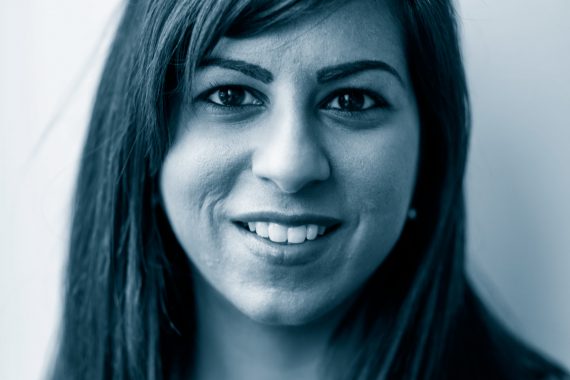The problems of being a millennial doctor

Self-entitled, selfie-obsessed, and self-absorbed. I was looking out at the lecture theatre of final year medical students I was teaching. That’s how the millennial generation is described.
Can we do anything about these generational differences?
I watched their species closely. Their phones-on-steroids always in reach, pinging out 140-character snippets into echo chambers, caught in limbo between being present in the room and following blow-by-blow commentary of their friends’ weekends. And Justin Bieber’s.
I caught myself. Who was I kidding? I was one of them. A ‘Generation Y’-er, born after the early 1980s, and considered one of the great scourges of modern times. Politically apathetic, cosseted narcissists, choking on skinny flat whites and kale smoothies whilst incessantly tracking our social currency of likes and followers.
I was reminded of Simon Sinek’s interview on millennials, which has recently been doing the rounds. In it, he purports that our generation are struggling in the workplace, and presents a persuasive argument for why.
Apparently, it all starts with well-intentioned parenting strategies that may have backfired. The drip feeding of expectation that we could have anything we wanted in life, and the excessive stars that were dished out for just showing up, have resulted in an unrealistic view of our coveted place in society. According to Sinek, this ‘bad hand’ that we’ve been dealt leads to lower self-esteem, a false sense of entitlement and a shattering of self-image when we enter the ‘real world’.
It’s not just our parents’ fault. Sinek believes that growing up in a world that we entered with smartphones in hand has led to an over-reliance on extrinsic affirmation. He also argues that the addictive ‘dopamine-hits’ we get from engaging with social media have led to a perpetually distracted workforce, unable to form meaningful relationships. The result is a generation of ‘wonderful, idealistic, hardworking, smart kids’, each yearning to reach the summit and make an impact, but who ‘can’t see the mountain’ before us.
It would be easy to buy into his soliloquy. And even easier to use it as evidence that the recent angst amongst junior doctors is just typical of us millennials. But whilst Sinek’s narrative is compelling (and yes, my millennial attention span did last the entire 15 minutes), I’m unconvinced that his generational pigeonholing is an accurate depiction of over 1.6 billion individuals. For one thing, the idealism, self-soothing behaviours, and blind ambition he describes probably also rang true for the ‘Generation X’ and ‘baby boomers’ before us in their early adulthood.
But some generational disparities he highlighted may be worth a second thought.
Firstly, the immediacy of response-time and degree of control we have with so many of our decisions are now expected norms. And that bar is rising quickly. Of course, it’s not unique to millennials (I’ve just watched my Dad stream a film off his Amazon-primed laptop whilst he ate the Dominoes pizza he’d made online). But for junior doctors, the comparative snail’s pace at which our rotas are released and training places allocated – these trivialities that help us to map out the rest of our lives – feels unacceptably medieval. Navigating the vacuum between the enthusiastic medical student and quest to become master of specialty might add to the frustration, when you consider we’ve only ever lived in a world of instant gratification.
Secondly, I think technology has created an ingrained expectation of immediate, personalised feedback in response to every move we make or opinion we voice. That might explain our gripes about the lack of meaningful feedback in our training. But at the same time, the increasing number of ‘e-hurdles’ often eat into the rare opportunities we might get to sit down with our seniors, time that could be spent discussing things that really matter. I think it’s that time that could really influence the doctors we become, more so than another tick-box exercise ever will.
Finally, I agree that our networks have exploded. So, perhaps we do spread ourselves thinner across those ‘slow, meandering, uncomfortable, messy processes’ Sinek calls true relationships. But equally, the endless merry-go-round from one trust to another dilutes our chances of building the same relationships within a team that our ‘baby boomer’ counterparts did. I think that’s why, when our seniors spoke out so fervently for us during the strikes, it sometimes felt like we’d stepped back in time.
So, whilst we might entertain some of these truths, can we do anything about these generational differences (said like a true impatient millennial)?
I think being mindful of the gap is a start. Beginning with ourselves, being aware that a degree of our frustrations might be born out of the way our generation has become accustomed to interacting with the world.
Looking out at those medical students that day, I was also struck by another prospect: with Moore’s law, any technology-driven disparity between sequential generations will only increase. I can’t see the system meaningfully adapting in time. So, if our seniors care to bridge that gap, it can only start with looking within their own circles of influence: in opportunities to invest in meaningful relationships with trainees, in their ability to provide some stability as they’re buffeted around, and in their power to encourage and protect their sense of purpose.
But then again – staying true to the fickle nature of my millenial opinions – maybe we’ll all be too busy dabbling in dopamine and documenting our lives in emojis anyway.
Dr Nishma Manek is a GP trainee in London. You can follow her on Twitter @nishmanek
Pulse October survey
Take our July 2025 survey to potentially win £1.000 worth of tokens










